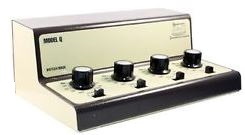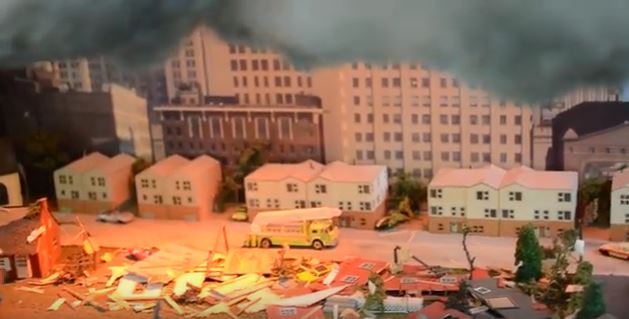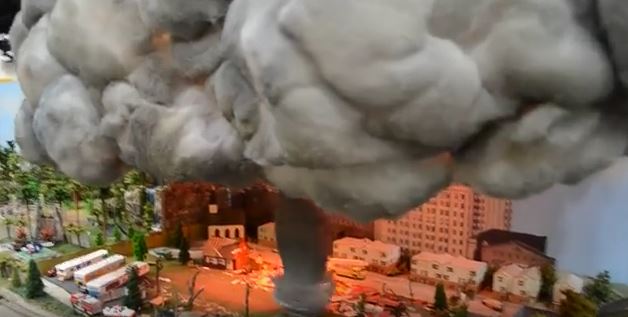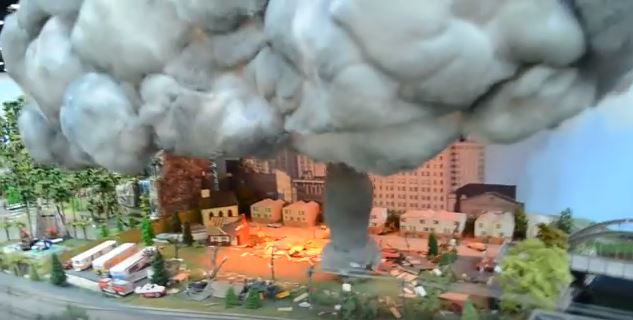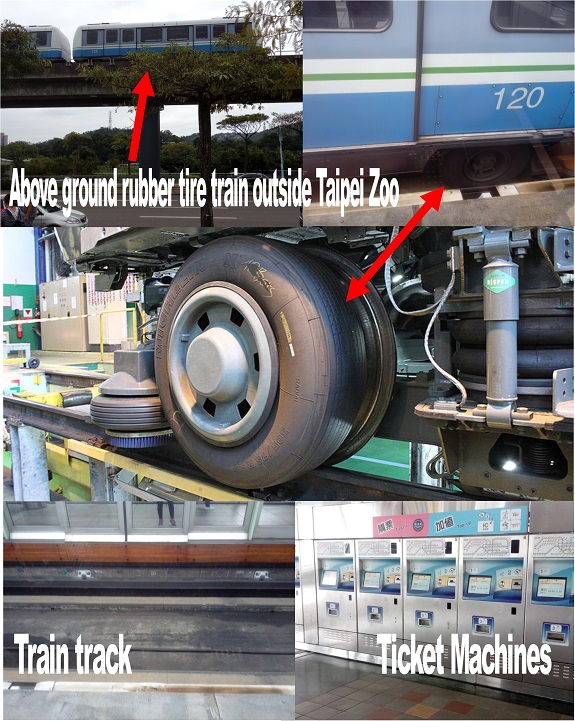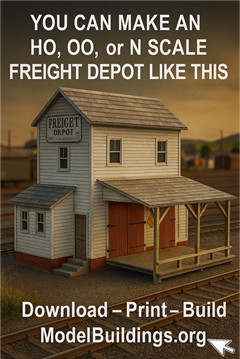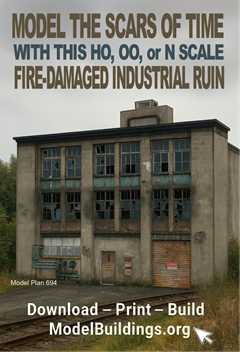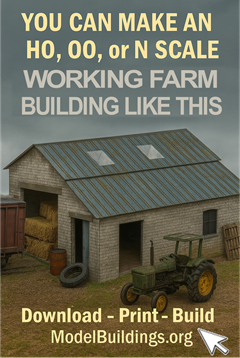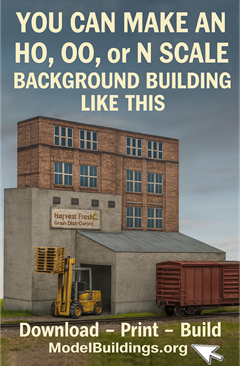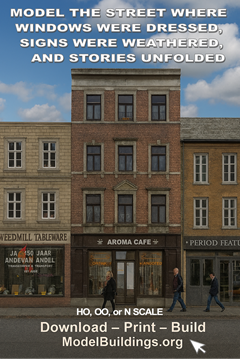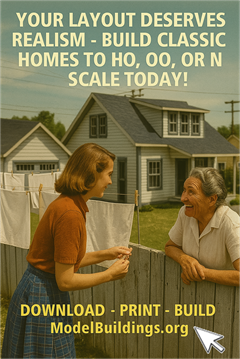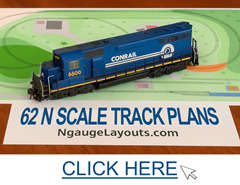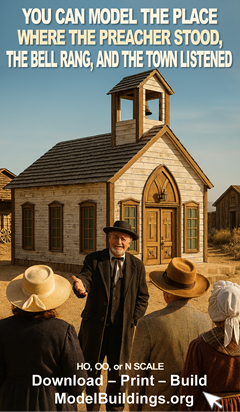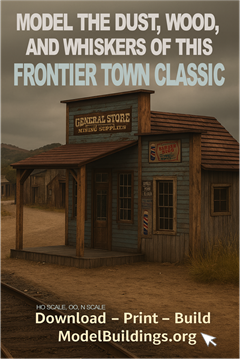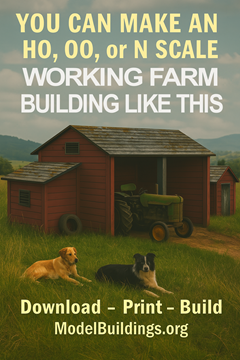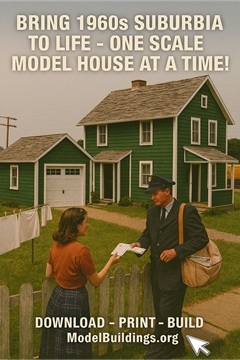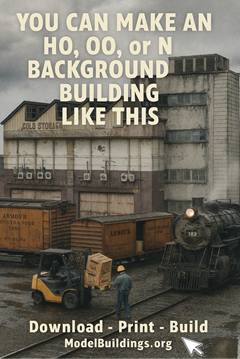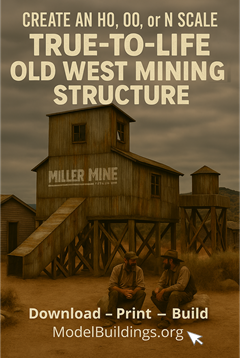Everything on model trains, model railroads, model railways, locomotives, model train layouts, scenery, wiring, DCC and more. Enjoy the world's best hobby... model railroading!
Can You Ballast Bachmann EZ Track?
Another Online Train Club Member Steve posted this question:
“I’ve finally got most of my track down. I used Bachmann EZ Track. Now that it’s down I wouldn’t mind having a go at ballasting. A friend warned me against it and suggested maybe just painting it to add realism. Has anyone ballasted EZ track with any success or is it a crazy idea?
The Difference Between a Single Slip and Double Slip
Online Train Club Member Henry J sent in this question for readers:
“Maybe the old brain isn’t working right (not an uncommon occurrence :), but I’m confused about understand the differences between a single slip and a double slip and what each does?”
Gaugemaster Q 4 Track Controller
Brian sent in this question:
“I just bought a Gaugemaster Q 4 Track controller. When I switch it on makes a buzzing sound. Is this normal?
Thanks. Brian.”
Which Couplers for Block Cars?
N scaler Roy asks:
“What couplers should I use that look realistic but will never be uncoupled?”
Add your comment, or see the comments of others, by using the COMMENTS link under Roy’s posting.
Is Atlas and EZ Track Interchangeable
Ron asks:
“Is Atlas N scale and EZ track interchangeable? Yesterday I purchased a Bachmann set 24X44 with 8 rolling stock.”
Tightest Radius for N Scale Circle?
Charlie sent in this question:
“What can be the tightest radius (in inches) of an N scale circle? I want to create a ‘pizza box’ layout but I want it to run reliably.”
Replacing Old Couplers With Kadee Lookalikes
Ross wants to hear what others think:
“I am looking to replace the horn hook couplers on several older freight cars. I spotted some Kadee clones that will fit into the coupler mounts on the trucks. Am I wasting my time buying the knock-off clones which are cheaper, or should I stick with Kadee. I know sometimes you pay extra for a brand name. Does anyone have experience using both?”
Use the COMMENTS tag to add or view comments. Use the ASK A QUESTION tag to submit a question to he Blog Moderator for publication.
Twister Wreaks Havoc On Layout
Online Train Club member Allan sent in these photos to share. He said they were taken at the National Railroad Association Train Show.
Cleaning Oxidized Track Ready For Soldering Droppers
Online Train Club member Erik has this question for fellow hobbyists:
“I want to clean some old oxidized track as I want be solder droppers on various part of the track. I had a go scrubbing it using a small stiff wire brush with borax powder and some sugar soap. I’ve only done a couple of pieces as it is such a slow job. Is there a easier and better way to bring the shine back? I thought about using a fiber glass pencil, but I think it would be messy and will wear away to fast. I thought someone might know of a ‘secret solution’ of chemicals I could use to make the task easier?”
Add your comment below if you can assist Erik.
Ideas for Food Industry on Layout
A question from another readers:
“Hello I am wanting to build a new HO scale layout I want a food factory on this layout and another industry. It needs to fit in a very small space 1 and a half feet by no more the 9-8 inches please give me tips and advice thanks – Brock Ian”
Add you suggestion (and view suggestions from others) using the COMMENTS tag below.
Wiring an Atlas Switch with a Plastic Frog in a DCC Environment
Tom has this question for readers:
“I use Tortoise switch machines to control my HO switches. I would like to use the switch machine to change the current for the switched rails but don’t know understand where to connect the changing current lead from the tortoise as there does not appear to be a common point for both rails coming off the frog. Do I just solder is to both of the rails coming off the frog or is there a better/more correct way to do it?”
Add your answer, or view answers using the COMMENTS tag below.
How Many Power Districts Are Needed?
Ho railroader Joseph asks:
“Hello all. I have a medium size layout in my basement. It’s 303 feet of track total. 3 continues loops. I’m going to separate into 5 different power districts. Do I need a separate booster for all 5 districts?”
When Do I Need Insulated Joiners?
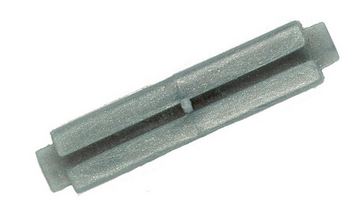 Maurice a keen member of the Online Train Club Member used the ‘ASK A QUESTION’ link to submit this question for readers:
Maurice a keen member of the Online Train Club Member used the ‘ASK A QUESTION’ link to submit this question for readers:
“If I have a DCC setup, then why would I need to use insulated joiners?”
Best Place to Railfan In Asheville NC?
Brock Ian who is interested in HO and a keen “railfan” enthusiast asks:
“Hello, What is the Best place to Railfan In Asheville NC? Thanks.”
Add your suggestions using the COMMENTS tag below.
Mystery Rail Yard #3 – Guess The Location
The first two mystery photos certainly generated considerable interest and confounded many. Following numerous requests I have included a third mystery photo for you to guess. Have a go – it doesn’t matter if you get the country or city wrong… the fun is in trying to guess a likely location. It won’t be long before someone gets the right answer and supplies some history and details. You’ll be able to follow the picks and see the correct answer when it gets published. Click the COMMENTS below this post.
If you think you know where this photo was taken, simply add your answer using the COMMENTS below this post. That’s also where you will see the answers submitted by other readers.
Rubber-Tired Metro Trains part of Taiwan’s Rapid Transit System
Many readers who were guessing the answers to the two mystery rail yard photos recently posted on this Blog were surprised to learn that mystery photo #2 was taken in Taiwan (mystery photo #1 was at Seoul Station in South Korea). Taiwan’s greenery and mountains in the mystery photo #2 came as a surprise to many who thought the photo was captured in Europe, South America, Japan, or maybe New Zealand. Not so; Taiwan is generally very green with the main population hubs concentrated in a few big cities.
The big city of Taipei in the North has an extensive and very efficient mass transit metro system that reaches out in all directions including a direct line from Taipei’s Main Station to the main international airport – Taoyuan International Airport. You can get your boarding pass and check your bag in at Taipei Main Metro Station and board the train for the airport which saves a lot of time at the airport end.
Most of the Taipei metro system is underground, but the Brown Line which operates from Taipei Nangang Exhibition Center to Taipei Zoo operates above street level on rubber tires (tyres in British English).
The Taipei Brown Line opened in 1996 and is not the only train line in the world to run on rubber tires. There are many other examples. The rubber tires on the cars run on rolling pads inside guide bars for improved traction.
The Brown Line in Taipei stretches 15.6 miles (25.1 kilometers) servicing 24 stations across 7 districts in Taipei of which 22 of the train stations are elevated above street level and 2 are underground. As of Sept 2011, Taipei’s Brown Line, with it’s driver-less trains, transported on average of 180,000 passengers daily, although this figure has likely increased somewhat since then.

